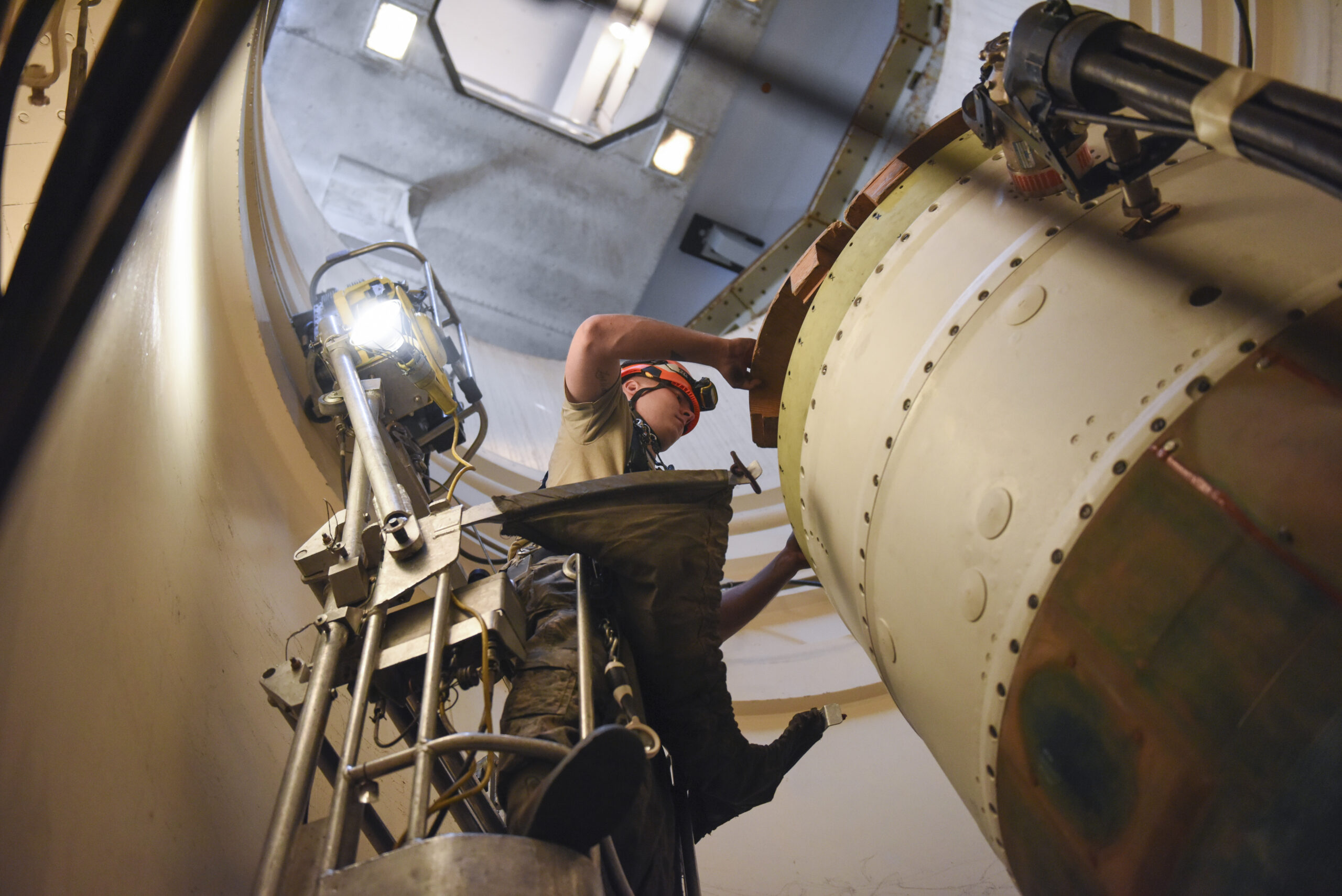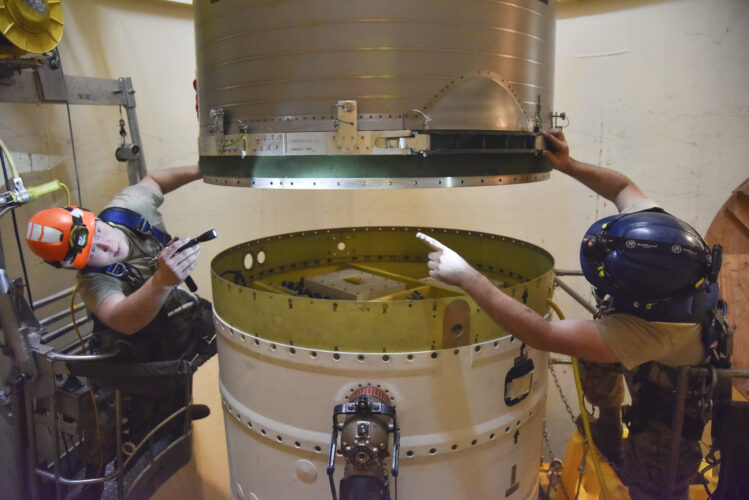The Montana Air Force detected alarmingly unsafe levels of carcinogens at underground launch control centers in the state’s nuclear missile base. A high rate of local cancer diagnoses in both men and women were reported around the area, prompting health hazard concerns.
According to a statement from the Air Force Global Strike Command on Monday, this discovery is the first of “extensive sampling” of active U.S. intercontinental ballistic missile bases to address specific cancer concerns raised by missile community members.
Two launch facilities at Malmstrom Air Force Base in Montana showed polychlorinated biphenyls (PCB)—waxy substances identified as carcinogens—levels higher than the recommended thresholds by the U.S. Environmental Protection Agency (EPA). From a total of 300 samples taken from various surfaces using swiping techniques, 21 samples detected PCBs, while 19 of those were below levels set by EPA requiring mitigation. Two samples were above levels and 30 air samples detected no PCBs.
Learn the benefits of becoming a Valuetainment Member and subscribe today!
According to a military briefing obtained by The Associated Press, nine current or former missileers, (male and female military officers serving in underground launch control centers) at Malmstrom were diagnosed with non-Hodgkin’s lymphoma – a rare blood cancer. Soon after, the Air Force School of Aerospace Medicine launched a study to look at cancers in the entire missile community.

At least 217 of those reported cases are cancers with 33 of them diagnosed as non-Hodgkin’s lymphoma. Statistically, the CDC reports that within the U.S. population, there are roughly 403 new cancer cases reported for every 100,000 people each year, with non-Hodgkin’s lymphoma affecting 19 in every 100,000 people annually, according to the American Cancer Society.

In response, Commander of Air Force Global Strike, General Thomas A. Bussiere directed “immediate measures to begin the cleanup process for the affected facilities and mitigate exposure by our airmen and Guardians to potentially hazardous conditions.”


















Add comment